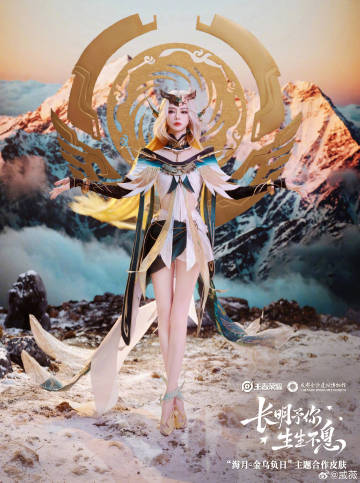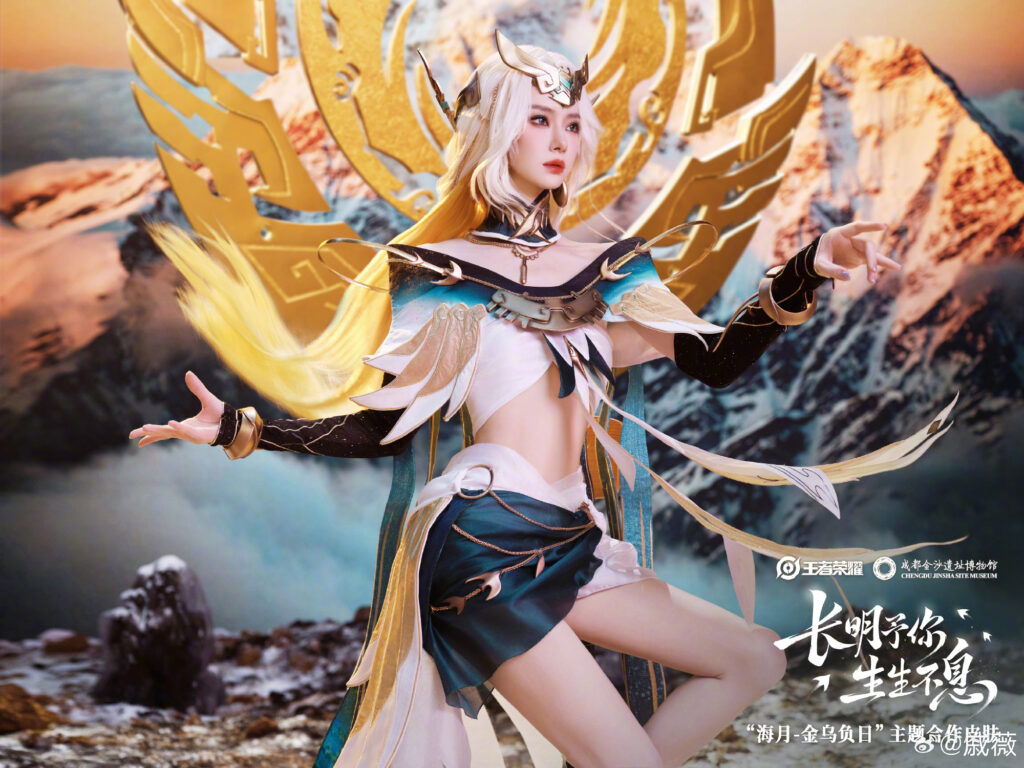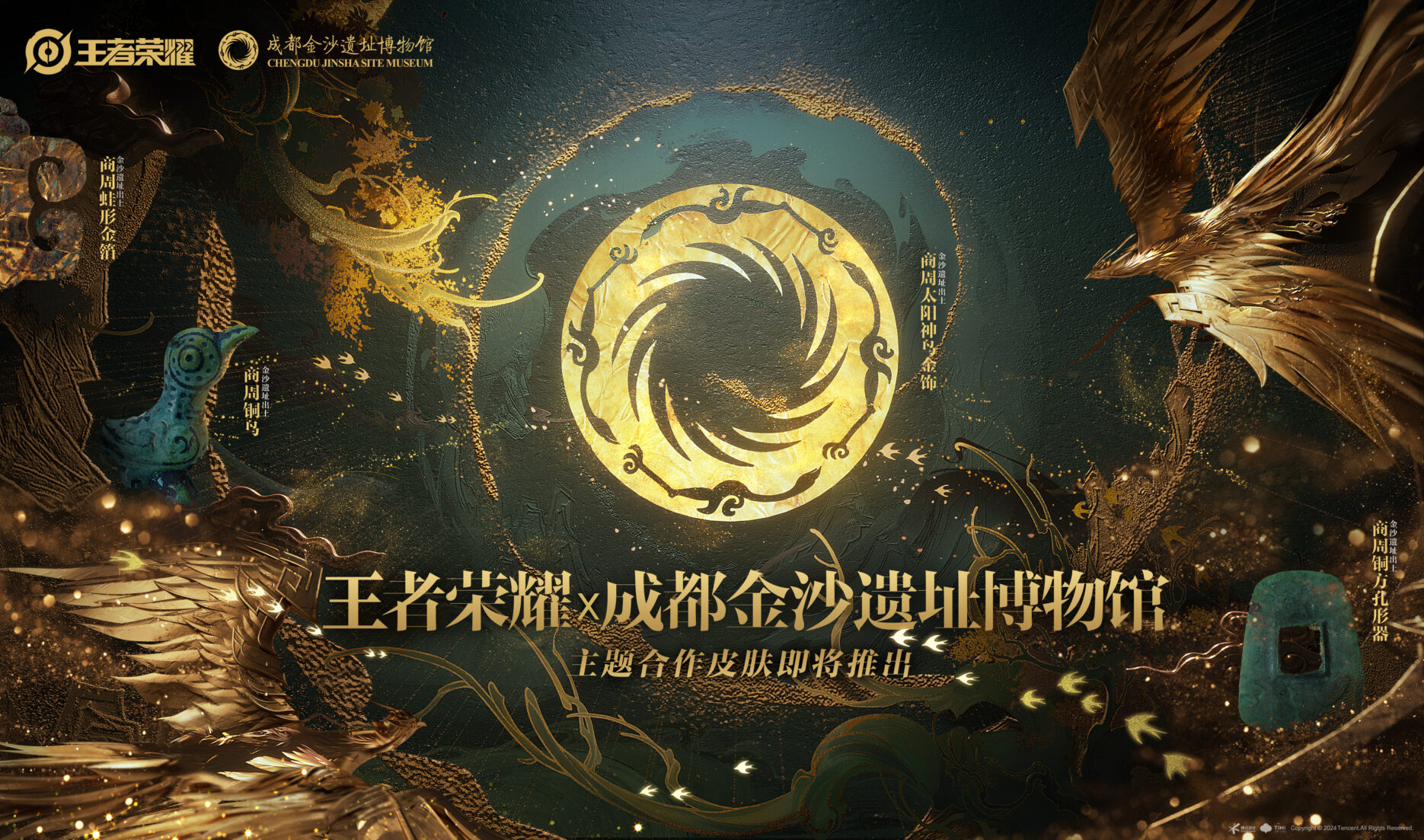Key Takeaways
- The Chinese mobile game Honor of Kings collaborated with Jinsha Site Museum in Chengdu, China’s new gaming hub and the birthplace of the game.
- The social media campaign educated consumers about the ancient history of Sichuan, tapping into consumers’ thirst for knowledge.
- Honor of Kings was previously labelled “poison” by state media, so educational brand collaborations help it stay in regulators’ good books.
Museum collaborations are all the rage in the China marketing space this year. They offer the opportunity for brands to satisfy consumers’ craving for educational value and align with the current phase of China chic, which emphasizes cultural IP.
Chinese game developers are trying to challenge the view that games are “spiritual opium”
The gaming industry is no different. In fact, it might be one of the sectors best suited to museum collaborations. One reason is that Chinese video games are often set in fantastical versions of imperial China, much like the Wuxia genre of manga, films, and TV, so there is an obvious aesthetic match.
More than that though, game developers are under pressure to prove that their products are valuable to society. Under the lingering threat of immense regulatory scrutiny, they are proactively debunking the strongly held view among the political class that games are “spiritual opium”. Providing clear educational value is often game developers’ fastest route to this.
Honor of Kings is here to show us how it’s done. The smash hit mobile online battle arena (MOBA) game was born in Chengdu, so what better collaborative partner to choose than Jinsha Site Museum, home to the ancient Shu people of Sichuan?
Sichuan and the Sun Bird
Jinsha Site Museum is home to one of the biggest archaeological discoveries of the 21st century. Building developers stumbled upon the site in Chengdu’s Qingyang District in 2001 and discovered the remnants of an ancient kingdom called Shu (蜀) dating as far back as the late Shang dynasty (circa 1045 BCE). The Shu people were later conquered by Qin Shi Huang, the creator of the first unified Chinese empire, around 300 BCE. The most famous Jinsha artefacts, including the kneeling stone figurines and gold mask, all show up in the museum’s campaign with Honor of Kings.
But the crown jewel of the museum’s collection and the star of the marketing campaign is the Golden Sun Bird – a ring of gold foil depicting four birds encircling the sun. The Shu people worshipped the sun, and so it is thought that the Golden Sun Bird held special significance to them. In 2005, China’s National Administration of Cultural Heritage named the Golden Sun Bird an official symbol of China’s cultural heritage and Chengdu made it the official emblem of the city. It is also the museum’s logo.
The most famous Jinsha artefacts all show up in the museum’s campaign with Honor of Kings
In honour of this rich history of Chengdu, Honor of Kings is launching a new “skin” inspired by the artefact. A skin is like a different look for popular in-game characters that players can download. In this case, the new skin is for the Hai Yue character and will go live on April 1st. This takes the city full circle, from the birthplace of a unique ancient civilisation to the gaming hub of 21st century China.


As well as giving Hai Yue a Jinsha-inspired makeover, the two companies rolled out a two-part live-action film about the Golden Sun Bird exploring modern-day Chengdu. The film seems strongly inspired by last summer’s viral micro-drama “Escape from the British Museum” about an anthropomorphic Chinese jade teapot making her long pilgrimage home to China. In addition, the Chengdu-born singer and actress Qi Wei cosplayed as the Golden Sun Bird edition of Hai Yue, and posted a behind-the-scenes montage from the makeup chair, which garnered huge support from fans on Weibo.
Safe from scrutiny?
The collaboration with Jinsha Site Museum is a prudent move for Honor of Kings, given it was labelled “poison” by the Chinese Communist Party mouthpiece the People’s Daily only 6 years ago. The publication was voicing a longstanding concern about the toll addictive video games are taking on China’s youth, but Honor of Kings was the only game mentioned in the piece, likely due to its astronomical success. The article took particular issue with its depiction of history, which it called “fictitious” and said it distorts young people’s values.
Since that op-ed was published in 2017, China’s gaming industry has undergone sweeping changes, one of which is stricter licensing rules. All video games in China, both foreign and domestic, must obtain a government-issued license before they can be legally distributed. Since the tech crackdowns of 2019-2022, which included a year-long freeze on video game licenses, games that are educational in some way are more likely to get a license.
Honor of Kings is a major cash cow for its publisher Tencent Games so it makes sense to go all-out in upping the educational quotient. Both Jinsha Site Museum and the game made clear efforts to substantiate this in the digital marketing strategy. For example, Jinsha Site Museum posted a video on Weibo explaining the history of the Shu people and drawing a clear link between the legend behind the Golden Sun Bird and the new character skin. These efforts are poised to secure Honor of Kings’ status as not just the highest-grossing mobile game of all time, but as a bearer of China’s rich history.









